When the time comes for your child to start kindergarten, you may have a lot of questions about what the different programs offer, and what is the best choice for your family.
Children learn more in the first 5 years of life than at any other time. 3 and 4 year old kindergarten provides children with an environment that encourages and supports their development. It gives children the opportunity to explore the world and provides them with a solid foundation to learn the skills that are required for transitioning to primary school.
Traditionally, a funded kindergarten program could only be accessed at sessional kinders. This has changed over the past decade and now kindergarten programs are available in both long day and sessional formats.
Fitting the hours of a sessional kinder program into a working day is difficult for many families. All four of our centres operate 3 and 4-year-old kindergarten programs within the childcare centre environment, providing flexibility and convenience for families.
We implement an emergent curriculum in our kindergarten programs, in which the program is planned according to the emerging interests and needs of the children. This curriculum allows each child to develop and learn at their own pace, and engage in learning experiences in their own way. It enables educators to extend on each child’s individual development through open-ended experiences, and encourages children to engage in activities that have come from their own ideas thus empowering them to become confident and independent learners.
Experiences within an emergent curriculum program can be altered regularly to meet the children’s everchanging needs and interests. However, experiences may also stay the same for many weeks to give children an opportunity to master their skills. This flexible approach ensures that children are constantly learning and challenged throughout their time at kindergarten. They leave kinder well-prepared and ready for the important and exciting transition to primary school.
HOW DOES KINDERGARTEN IN LONG DAY CARE DIFFER TO SESSIONAL KINDERGARTEN?
In childcare services, families are offered the opportunity to attend a specialised kinder program, within a more flexible environment, that caters for families working and studying by providing extended hours of education and care. With our centres being open for up to 11.5 hours a day, children have access to a high-quality learning program for the whole day as opposed to short sessions spread over a number of days.
Families are able to choose which days they wish to attend the kindergarten program (pending availability) and for any length of time, unlike sessional kinder which has smaller sessions spread over a number of days. It also allows families the opportunity to drop all of their children off at the same time and pick them all up together at the end of the day.
In long day childcare services, kindergarten children get to enjoy additional experiences outside of the kinder program. The children regularly mix with their younger peers and have the opportunity to take on mentoring roles. Research has shown that these interactions have many benefits for children.
Additionally, one of the benefits of attending kindergarten in a long day care setting is consistency for children and families. A child can begin in the nursery or toddler groups and move through to the older kindergarten age groups having developed a sense of belonging to the service and educators.
The kindergarten curriculum runs throughout the calendar year, including school holidays and is only non-operational when the centres are closed (on public holidays and weekends). Whereas, sessional kindergarten services correlate to school terms with limited hours.
All meals are provided, from breakfast in the morning to a late snack in the late evening, whereas at a sessional kindergarten, meals are normally provided by the family. This is a part of the service we provide to all childcare and kindergarten children, ensuring they are being provided healthy meals and snacks that meet all nutritional requirements.
Our kindergarten programs have university qualified and VIT registered Early Childhood Teachers who develop and deliver the kindergarten educational program along with qualified educators, just like they do at sessional kindergarten.
Like other long day care and sessional kinder services, we are rated and assessed under the same standards and frameworks. All are governed by the same laws and regulations and need to meet the same national standards including the requirement for qualified university Early Childhood Teachers to develop and deliver the curriculum and follow the national mandatory educational frameworks.
In Victoria, the ‘Kindergarten Tick’ identifies a service that offers an approved funded kindergarten program. Every service that displays that tick offers a quality kinder program which is approved and regulated by the Victorian Department of Education, just like ours.
When you see the Kinder Tick, you can be confident:
- the program will be led by a qualified teacher
- children will benefit from play-based learning
- the kindergarten program is funded and approved by the Victorian Government
- the program meets government guidelines and complies with the National Quality Framework.
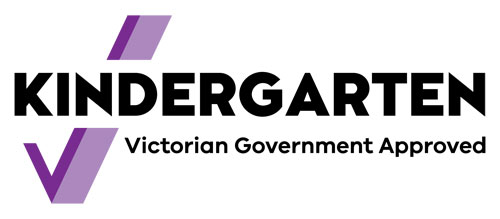
In long day care, fees are subsidised by the Child Care Subsidy (CCS), whereas in a sessional kindergarten, they are subsidised by the Kindergarten Fee Subsidy. The Child Care Subsidy is calculated differently for each family as it is determined by the number of hours a child is accessing kindergarten and is also based on work/study hours and income assessments. The daily fee charged by a childcare service also factors in all meals, daily consumables, and the extended hours of the service.
In a sessional kinder subsidised by the Kindergarten Fee Subsidy, the fees are much lower for families as they are only paying for short sessions of kinder spread over a number of weeks. It can be a very affordable option for families, but does not have the same flexibility with days and hours as long day care does. Some children are entitled to free kindergarten in sessional kinders, but only if they meet certain eligibility requirements.
To summarise, the similarities and differences are as follows:
|
LONG DAY CARE KINDERGARTEN |
SESSIONAL KINDERGARTEN |
| 3-year-old kindergarten program led by university-trained, VIT registered early childhood teachers |
3-year-old kindergarten program led by university-trained, VIT registered early childhood teachers |
| 4-year-old kindergarten program led by university-trained, VIT registered early childhood teachers |
4-year-old kindergarten program led by university-trained, VIT registered early childhood teachers |
| Set assistants for the rooms, with multiple additional educators available to work with or alongside the group | Set assistants for each kinder group |
| Run by professional child care providers |
Often run by not-for-profit organisations, committees, or affiliated with schools |
| High-quality, play-based, indoor/outdoor program |
High-quality, play-based, indoor/outdoor program |
| Operates Monday to Friday for 52 weeks per year. Open from 7:00am to 6:30pm daily. Only closed on public holidays and weekends. |
Operates in sessions across the week for 40 weeks per year. Sessions are usually between school hours. Closed on school holidays, public holidays and weekends. |
| Flexibility of days and attendance times, with the ability to request casual days or permanently change days |
Sessions are pre-planned by the kinder, usually between school hours, with set drop off and pick up times |
| Breakfast, morning tea, lunch, afternoon tea and late snack provided |
Meals usually provided by families |
|
Subsidised by the Child Care Subsidy: |
Subsidised by the Kindergarten Fee Subsidy: |
|
Siblings can attend at the same time in younger rooms / |
Sessional kinder is only for the child |
| Provides toileting and nappy changing facilities and can assist with toilet training children |
Children are often required to be fully toilet trained to attend kindergarten |
|
Must be fully vaccinated to enrol |
Must be fully vaccinated to enrol |
| Creates individual learning plans for each child, documentation on their progress and provides detailed transition statements to schools | Creates individual learning plans for each child, documentation on their progress and provides detailed transition statements to schools |
| Provides a calendar of events including dress-up days, family events, and kindergarten graduations. |
Provides a calendar of events including dress-up days, family events, and kindergarten graduations. |
FREE KINDER
Free Kinder is available for both 3 and 4-year-old kindergarten programs from 2023 onwards. This is available at both standalone (sessional) kindergartens and long day care (childcare) centres. This means families will save up to $2,500 per child each year.
The Best Start, Best Life reform helps all Victorian children dream even bigger through increased access to quality early childhood education and care. A critical part of the reform is Free Kinder, which will support access to two years of high-quality kindergarten programs for all Victorian children by making this free.
All early childhood education and care providers that deliver a funded kindergarten program in Victoria are eligible to receive Free Kinder funding from 2023 onwards, subject to meeting specified terms and conditions.
Free Kinder supports families to access a funded kindergarten program by
- providing a free 15-hour program to four-year-old children enrolled at a sessional service
- providing a free 5-to-15-hour program to three-year-old children enrolled at a sessional service
- offsetting the funded kindergarten program component of parent fees for three and four-year-old children enrolled at a long day care service.
HOW DOES THE 3-YEAR-OLD KINDERGARTEN PROGRAM WORK?
- Children must attend a 3-year-old funded kindergarten for at least 5 hours per week so children would need to be enrolled for at least 1 day.
- The child needs to be turning three by April 30th of the 3-year-old kindergarten year.
- Families are welcome to decide which day/s they would like their child to attend 3-year-old kindergarten (pending availability).
- The ratio of 1 educator to 11 children is the same for a kindergarten in a childcare setting as it is in a sessional kindergarten.
- Classroom sizes are similar and staffing arrangements are based on classroom size as well as any specific individual needs.
- In all kindergarten programs, the curriculum is designed and implemented by university-trained, VIT registered Early Childhood Teachers.
- The program is flexible and will cater for the range of ages and developmental levels of the children in the group.
- It is very common for children to spend two to three years in kindergarten.
HOW DOES THE 4-YEAR-OLD KINDERGARTEN PROGRAM WORK?
- Children must attend a 4-year-old funded kindergarten for at least 15 hours per week in the year before school, so they must be enrolled for at least 2 days.
- The child needs to be turning four by April 30th of the 4-year-old kindergarten year.
- Families are welcome to decide which days they would like their child to attend 4-year-old kindergarten (pending availability).
- Towards the end of the year, Transition Learning and Development Statements are written for those children moving onto primary school. These transition reports are a great way to ease the transition to prep, and bridges the gap between centres and primary schools.
- The ratio of 1 educator to 11 children is the same for a kindergarten in a childcare setting as it is in a sessional kindergarten.
- Classroom sizes are similar and staffing arrangements are based on classroom size as well as any specific individual needs.
- In all kindergarten programs, the curriculum is designed and implemented by university-trained, VIT registered Early Childhood Teachers.
- The program is flexible and will cater for the range of ages and developmental levels of the children in the group.
- It is very common for children to spend two to three years in kindergarten.
WHAT DO WE FOCUS ON IN OUR KINDERGARTEN PROGRAMS?
Children learn more in the first 5 years of life than at any other time. Kindergarten provides children with an environment that encourages and supports their development. It gives your child the opportunity to explore the world and gives them a solid foundation to learn the skills that are required for transitioning to school.
To support this transition, we focus on:
- Independence
- Confidently enter kindergarten without hesitation or apprehension
- Responsibility for belongings
- Dressing and undressing themselves
- Using the toilet independently
- Self-serving meals and pouring drinks
- Confidently explore the indoor and outdoor environments on their own
- Pack up after themselves and have respect for equipment
- Lunch Box Days where children bring lunch boxes to kinder & are familiarised on how to open wrappers, peel fruit, push straws into juice boxes etc.
- Social Interactions
- Communication and listening
- Cooperation
- Working with and alongside others in small and large groups
- Conflict resolution and resolving disagreements
- Turn taking and sharing
- Making and keeping friends
- Group times
- Build positive relationships with peers and teachers
- Understand social boundaries and behaviour limits
- Mentoring and nurturing younger children
- School Readiness
- Develop an increased attention span
- Name recognition
- Early literacy, e.g., language, sounds, letter and word recognition, pencil control
- Early numeracy, e.g., number recognition, counting, size, shape, patterns, colour
- Early STEM (science, technology, engineering, maths)
- Creative art experiences
- Music, movement and drama experiences
- Develop a love for learning and eagerness to learn about the world around them
- Using school equipment, e.g., scissors, sticky tape, glue sticks, hole punchers
- In 4-year-old kindergarten, free hearing screenings
- An end-of-year graduation ceremony for children moving off to primary school
- Sustainability and Community
- Centre events calendar
- Gardening and growing edible gardens
- Cooking experiences
- Sustainable practices
- ‘Kinder Buddies’
- Recycling and water saving activities
- Caring for centre pets
- Community projects
- Multicultural events and celebrations
- Interaction with the natural environment
- Skill Development
- Fine motor skills, e.g., developing finger and hand control
- Gross motor skills, e.g., developing balance and coordination
- Concentration
- Problem solving
- Remembering instructions and following directions
- Speech development
- Cognitive skills, e.g., cause & effect, reasoning, memory, visual processing
- Health and Safety
- Nutrition and healthy bodies
- Mental health and wellbeing
- Yoga and mindfulness
- Responsible Pet Ownership incursion
- Water Safety incursion
- Free dental screenings
- Free hearing screenings
- Introductory body safety
- Happy Feet classes
- Kelly Sports incursions
- Emotional Development
- Develop self-worth and confidence
- Build self-awareness and respect for others
- Recognise, convey and express their emotions
- Self-discipline
- Show concern and empathy for others
- Build resilience and self-esteem
- Maturity level
- Self-regulation (being able to manage their own feelings and behavior)
WHAT IS PLAY?
Play is important because it is the child’s “work”.
Play is not an organised activity like football, swimming lessons, ballet etc. While these are worthwhile activities, they are not play. It is through play that children make sense of their world. It is the world in which they learn to socialise, problem solve, and develop their creativity and independence.
Play is having fun. Children can play alone or with other children. In the first years of life, the wiring of a child’s brain is very important as it is this wiring that builds the basic capabilities of the brain. In kinder, the children will be exposed and introduced to many varying play experiences.
Play is child directed. It is a teacher’s role during play-based learning to create an engaging environment, facilitate, model and direct the child to develop their individual skills. By providing these play-based learning provocations, children are developing fine motor skills, language and literacy, cooperating, turn taking, resilience, and problem-solving strategies. They learn about size, shape, position, number, letter recognition, and develop independence.
WHAT IS A PLAY-BASED CURRICULUM?
Play is the children’s work through which they learn and make sense of the world around them. Our play-based curriculum is child-focused, emerging from their current interests, needs and development levels. We find that kinder-aged children learn most readily when the curriculum is relevant to their lives.
Our play-based, educational programs are interactive and exploratory, involving interaction with a rich variety of materials and equipment. We also incorporate as many ‘real life’, meaningful play experiences as possible, e.g., woodwork, threading, home corner, dramatic play. Children learn vital skills through a play-based curriculum as they are encouraged to make choices and share in decision making.
Their progress is monitored by their participation in hands-on experiences and observational assessments, not by worksheets or academic-based routines. Early literacy, numeracy, STEM, and creative art experiences are provided in our daily programs, both intentionally and spontaneously. We don't have specific times in the day where we focus on academic skills or knowledge as we know that children learn all they need to know through play (with gentle intentional teaching by educators).
The indoor and outdoor areas are used throughout the entire day. Outdoor play focuses on play-based learning, too, but also allows more scope for gross motor play such as running, skipping, balancing, climbing etc. The focus outside is also on interacting with nature and caring for plants and animals.
Children learn as they pursue their passions and questions. There are long stretches of uninterrupted time for the children’s play and exploration during the day, believing that children deserve to engage deeply with one another and with their ideas, questions and challenges. The children are taught new techniques and are introduced to a range of creative materials, but are always encouraged to use their own ideas and carry out their own work.
All children progress through the same stages in their artistic development but proceed at an individual rate. It is important not to impose an adult’s standards of drawing or painting by doing things for them, as they get dissatisfied with their own work if they are presented with adult concepts of how drawings or art “should look”. Educators encourage children to explore and investigate a range of materials and express their thinking and emerging understandings in a variety of ways.
We support children's curiosity and creativity and encourage them to investigate and solve problems. We help children to capture their learning and share their thinking. We will also help children to transition from kindergarten to primary school and encourage family involvement in the process.
Children will have a transition statement prepared by our kindergarten teachers, with input from the family and the child. This statement provides a snapshot of the child’s learning across their kinder year and contains valuable information for the child’s prep teacher. It explains what sort of learner the child is, their strengths and interests, and ensures the child’s primary school knows how to support the child from the moment they arrive.
Structured play-based learning in kindergarten provides long lasting developmental benefits. Here are 10 benefits of participating in a kindergarten program:
- Evidence demonstrates that 2 years of kinder are better than 1 year.
- Neuroscience research show that early learning is vital for optimal development.
- Age-appropriate play-based learning supports your child’s holistic development. This is facilitated by learning through play, risk-based play, nature play, indoor/outdoor play and messy play.
- Social, cognitive, and emotional development, as well as communication and teamwork skills, are enhanced.
- Kindergarten teachers are trained to identify and support children who have additional needs.
- Children learn about science, maths, literature, and environmental awareness by participating in play-based learning activities.
- Creative and innovative thinking is enhanced through imaginative play, construction, art and music activities.
- Mathematics and logic are developed through games and play.
- Prepares children for the transition to school in the coming years.
- High-quality kindergarten programs are tailored to each child’s individual needs and interests.
HOW CAN FAMILIES SUPPORT THEIR CHILD’S TRANSITION TO KINDERGARTEN
- Before Commencement
- Be positive – talk to your child about what they will do at kindergarten.
- Borrow library books about kindergarten to read together.
- Encourage your child to dress themselves, so they can manage tasks like taking their jumper on and off.
- Visit the kindergarten or travel past it on your route home.
- Label all belongings that your child will take to kinder.
- Read over the family information the kindergarten provided to ensure everything is prepared.
- Talk to your child and establish a goodbye routine together.
- Establish a routine for kindergarten mornings – this could include a chart with pictures outlining the different steps for getting ready.
- Organise holiday play dates with friends or children who will be going to the kindergarten.
- Create a routine around sleep – at this age, children need 10 to 12 hours of sleep each night. Practice sticking to bedtime and wake up schedules in the weeks leading up to the start of kinder.
- On the First Day
- Talk to your child about what to expect and when you will pick them up.
- Follow the kindergarten’s instructions about what to bring, e.g., sun hat, spare clothes.
- Prepare the night before – lay out clothing you both agree on and pack their bag together.
- Encourage your child to follow your morning routine and remind them of the next steps.
- Talk to the kindergarten teacher about how you would like to settle your child in, e.g., you may want to stay for a while.
- If you are having trouble separating from your child, ask the kindergarten teacher or educators to help you.
- Make sure you say goodbye – disappearing quietly can cause greater distress and mistrust.
- Ensure you are on time at the end of the session to pick up your child.
- Be enthusiastic and positive.
- At the end of the day talk to your child about what happened during the day.
HOW CAN FAMILIES SUPPORT THEIR CHILD’S TRANSITION TO PRIMARY SCHOOL?
- Enrol your child in a kindergarten program and ensure your child attends regularly.
- Establish a daily routine where your child arrives in time for the beginning of the kindergarten session.
- Talk regularly with your child about the experiences they might engage in, the friends they will make, and the interesting things they will learn.
- Encourage them to put on and do up their own shoes, and carry their own bag.
- Walk or ride to the new school and back so your child knows what it looks like and what the travel route is.
- Visit the school with your child before they start so they’re familiar with the classrooms, lockers, playground equipment, drinking taps, toilets, sick bay etc.
- Help your child meet some teachers, school office and canteen staff.
- Learn the names for break times such as recess or lunch.
- Encourage eating and drinking without help by supporting your child to wrap and unwrap their food and fill up their drink bottle.
- Pack lunchboxes with your child's assistance.
- Share and discuss positive experiences from your own school days.
- Ask for their help in naming items and uniforms, so they know how to identify them if they get lost.
- Develop family routines at home to support your child’s learning at school, e.g., read with your child each night, help them with any homework etc.
- Show where you will pick your child up each day, and explain what to do if you are late or not there.
- Talk about staying safe at school.
- Attend the school’s transition days and meet your child’s teacher.
- Reassure your child that if they are unsure of anything, to ask an adult.
- Borrow library books to read together.
- Teach your child how to share and take turns.
- Encourage your child to dress themselves, so they can manage tasks like taking their jumper on and off.
- Provide nutritious meals.
- Establish a positive “goodbye” routine with your child.
- Create a routine around sleep (5-year-olds need 10-12 hours sleep each night.)
- Get involved in your child’s school community, e.g., participating in playgroups, school visiting days, orientation days or other social gatherings like school fete.
- Attend school events such as a book week parade, an assembly, school concert or an end-of-year picnic.
- Read books with your child about starting school.
- Play games that build skills such as board games or ball games.
- Develop good relationships with other parents, especially parents of your child’s friends.
- Meet with school personnel to discuss any concerns, ask questions and/or provide information.
- Avoid overloading your child with extracurricular activities until they are well adjusted to the school routine.
- If necessary, arrange outside school hours care and familiarise your child with the process of attending the OSHC program.
TIPS TO HANDLE WORRIES ABOUT ATTENDING KINDERGARTEN OR SCHOOL
- Let your child know what you’ll be doing while they’re at kinder or school. This can help reassure your child that they’re not missing out, especially if you can save their favourite activities for when they’re with you.
- Talk with your child about routines. Toby Forward’s book, 'The first day of school', is a good discussion starter.
- Ask the teacher whether your child can bring something they love from home, like a teddy bear, pillow or blanket. If the kinder or school allows this, these objects can help your child feel safer. You can gradually phase them out as your child feels more settled.
- Talk to the teacher if your child gets upset when you leave. Early childhood teachers are experienced at helping children through separation and will have ideas to help you and your child.
- Ask the teacher about what might be worrying your child. The teacher can tell you what happens during the day. For example, your child might be worried about using the toilets, eating the food provided, or finding their things.
- Talk with the teacher about strategies to handle specific worries. If using the toilets seems to be the problem, the teacher can help your child get used to them. Labelling your child’s things can help your child keep track of them.
WHERE CAN I ACCESS RESOURCES AND MORE INFORMATION?
Each of our centres has their own kindergarten information for your reference:
- Glen Iris Childcare and Kindergarten - Kindergarten Programs at Glen Iris
- Kids on Gallaghers Child Care Centre - Kindergarten Programs at Kids on Gallaghers
- Kids on Mullum Child Care Centre - Kindergarten Programs at Kids On Mullum
- Wheelers Hill Child Care Centre - Kindergarten Programs at Wheelers Hill
You can also visit the following links:
- Better Health Channel - Starting Kindergarten for Children with Disabilities
- Care for Kids - Kindergarten vs. Childcare: Where Will My Child Thrive?
- Early Life Foundations - School Readiness
- Raising Children Network - Preschool: How it Works and Why It's Good
- Raising Children Network - Settling In at Pre-School: Practical Checklist
- Raising Children Network - Starting Preschool: Practical Tips
- Raising Children Network - Things to Consider when Choosing a Primary School
- Royal Children's Hospital - School Readiness
- Starting Blocks - Choosing Quality Education and Care for Pre-Schoolers
- Starting Blocks - Transition to School
- Victorian Government - Getting Ready to Start School
- Victorian Government - Kindergarten
- Victorian Government - Tips for Starting Kindergarten
- Victorian Government - Two Years of Quality Kindergarten: What Does the Evidence Say?




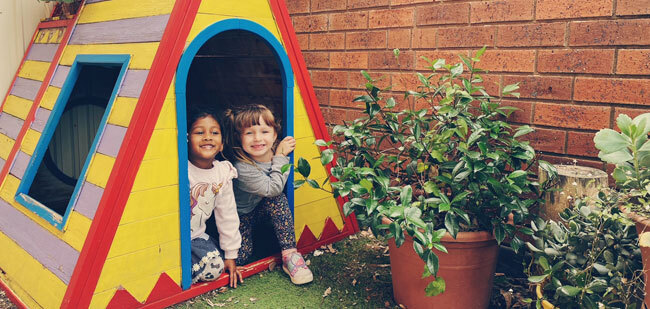
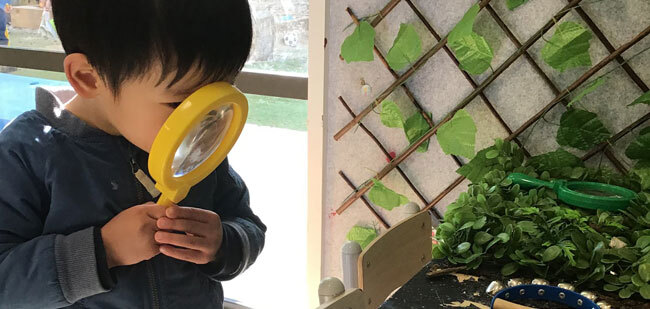
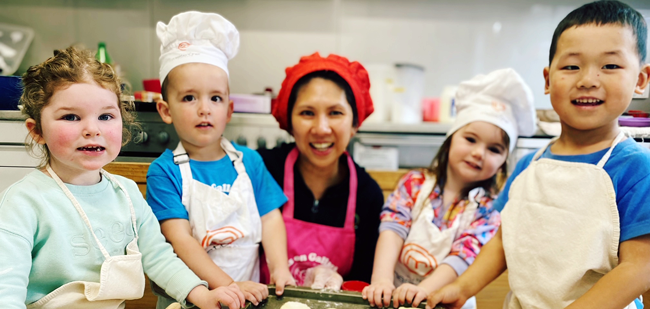
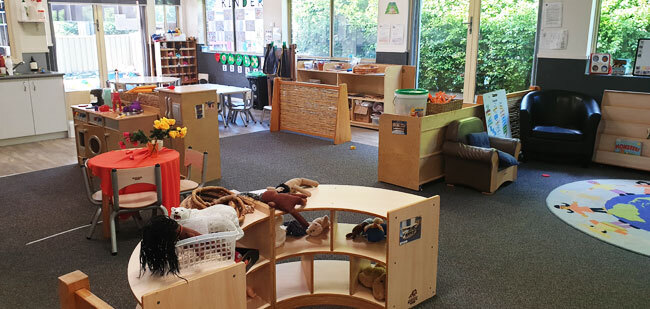
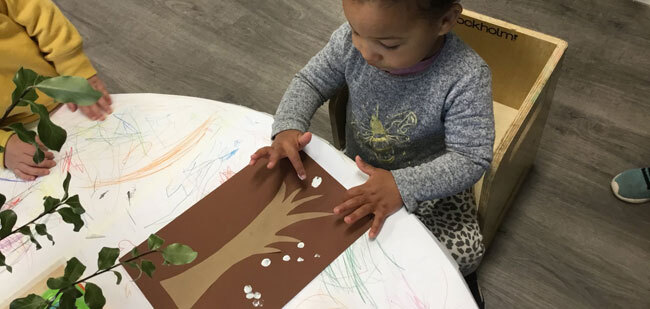
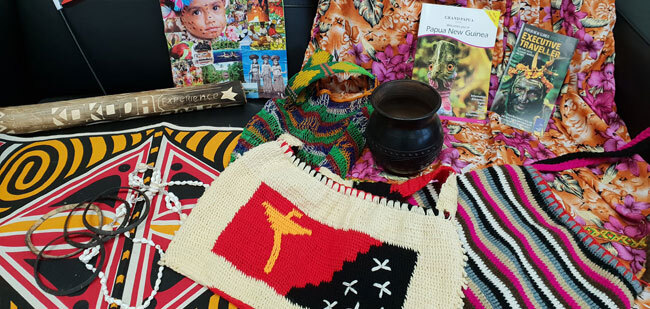
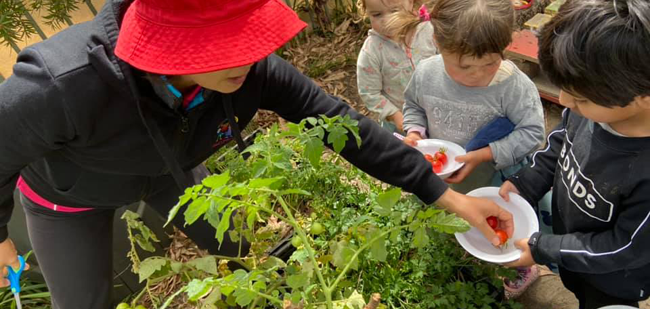
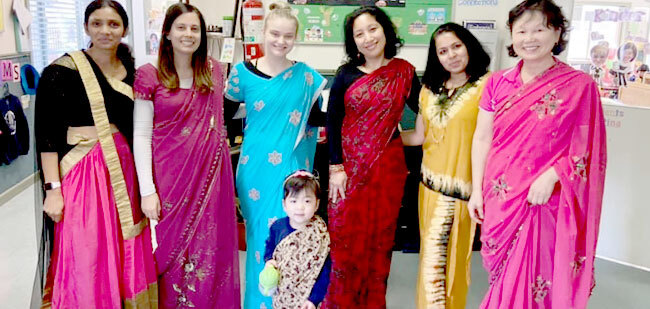
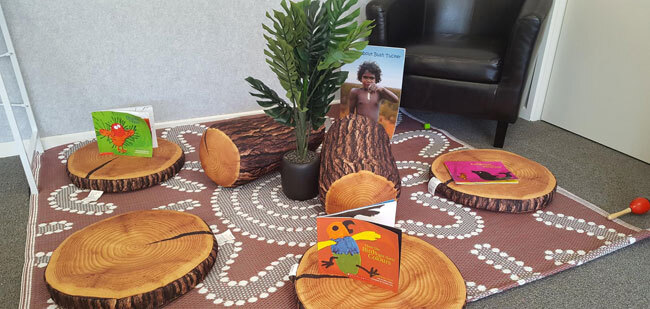
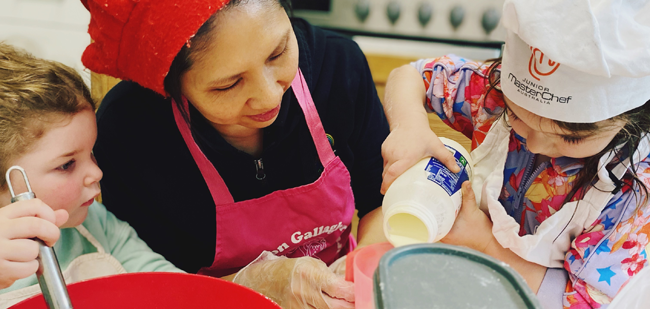
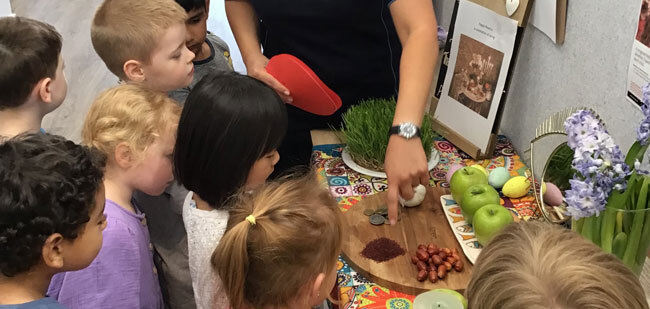
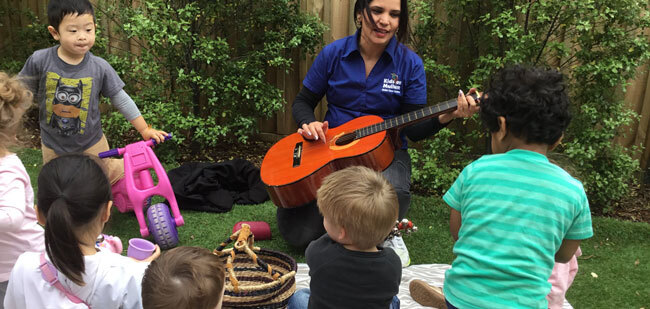
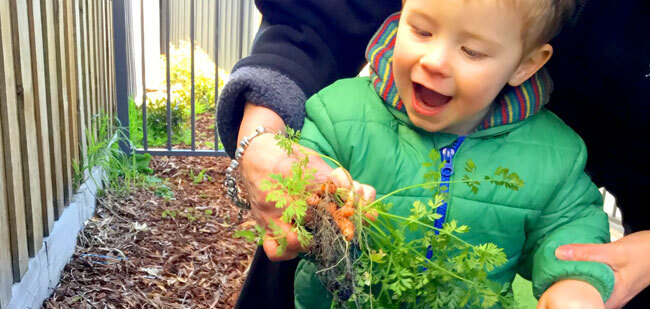
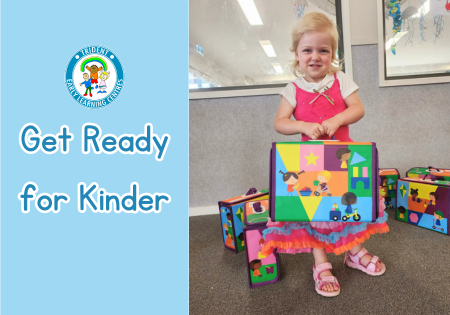
 info@tridentearlylearning.com.au
info@tridentearlylearning.com.au